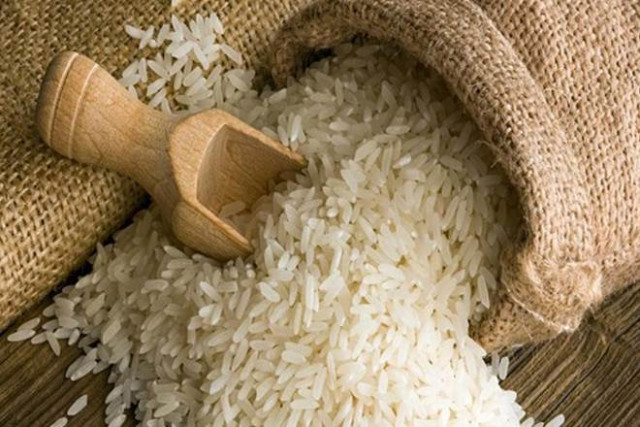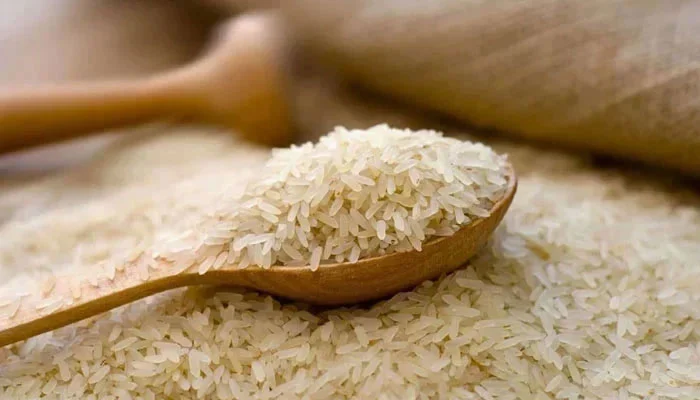Tags
Vietnamese Abandon Their Successful Rice Project in Cuba
Tired of Cuban Inefficiency

The area of La Sierpe, in Sancti Spíritus, was the main bet of the collaboration between both countries
By Mercedes Garcia (14ymedio)
HAVANA TIMES – The residents of La Sierpe, in Sancti Spíritus, glued their eyes and ears to national television this weekend while the news of the official visit of senior Cuban officials to Vietnam was presented.
The tone disseminated by the Ministry of Foreign Affairs was exalted. “For Vietnam we are still willing to give even our blood,” Roberto Morales Ojeda, a member of the Political Bureau of the Communist Party and former Minister of Public Health, said in Ho Chi Minh City.
What many residents in La Sierpe expected was a mention that would give them hope for the return of the Vietnamese technicians, who, in the middle of last year, broke their collaboration agreement with the Island to support rice production in the area and packed their bags to go home.
“With the departure of the Vietnamese we all felt a loss,” laments Diosdado, 68 years old and a resident in the vicinity of the Agroindustrial Company of Granos Sur del Jíbaro. “They arrived 20 years ago but got tired, because this was worse than plowing the sea; it was plowing in a sea of inefficiency,” says the farmer, one of the producers of the municipality who benefited from the agreement between the two countries.
The collaboration project began in 2002, and, in addition to providing equipment and machinery to Cuban producers, it kept dozens of Vietnamese specialists and technicians in Cuba. The area of La Sierpe was the main focus of this collaboration, and dikes were built, canals were cleaned and local specialists were trained.
But, over the years, the performance of the rice fields failed to meet the expectations of the Vietnamese, who also had to deal with the clumsy state bureaucracy, the lack of a stable supply of fuel and the inefficiency of the Agroindustrial Company. The final blow to the relationship occurred last year, when the hydrocarbon crisis deepened.
“The Vietnamese technicians demanded a quota of fuel to keep working, advising and connecting directly with what was happening in the fields,” Diosdado tells 14ymedio. “But the amount they needed almost never arrived, and then they were told that they had to supply it themselves, buy it abroad and bring it to the Island.”
In the end, “the Vietnamese did not renew the contract, as they had in previous years, and the technicians left,” an employee of the administrative area of the Agroindustrial Company tells this newspaper. “The Communist Party bosses gathered us at the beginning of this year to tell us that the Vietnamese were leaving, and they warned us not to say anything about it.”
The company’s national employees were faced with a problem. “They had to be sent to look for farmers in the area who wanted to request part of the rice cultivation area in usufruct, in order to save the current campaign, but they could not be told why the Vietnamese were no longer there,” explains the state worker.
“But it hasn’t stopped there. Now we are in the middle of a dispute with Vietnam because, since the agreement was not renewed, they want to take back a lot of the equipment they had brought,” he says. “Without those machines, we will have to go back in time to harvest the rice.”
In the nearby Mapos Basic Unit of Cooperative Production (UBPC), which was also part of the project, some affiliated producers feel the departure of the Vietnamese is the prelude to the collapse of the sector in the province. “What had been achieved was the result of their insistence and industriousness,” acknowledges a local farmer, who prefers anonymity. “They were very persistent people, who got up in the morning and immediately went to the fields. They followed every step of the rice crop.”
“It was possible to improve performance a lot after they arrived,” admits the farmer. “Now there are almost no more than three tons of grain per hectare, but when the project with the Vietnamese was at its best, back in 2015, up to five tons per hectare were extracted. It seemed that we were never going to lack rice in the province, and it’s hard to believe the situation we’re in now.”
In the Sancti Spíritus agricultural markets this week one pound of the grain was sold at 160 pesos [$7]. “And it’s not even good rice; it has a high percentage of broken grains, and customers buy it because there’s nothing else, but it’s a product that looks more like animal feed than something to put on a table at home,” he says.
In the port of Nuevitas, Camagüey, another employee of the commercial department confirms that “the Vietnamese took out a good part of the rice that was harvested in La Sierpe to export it. It was part of the agreement: they kept a percentage of the harvest and sold it on the international market.” According to this source, the non-payments on the Cuban side were due to tons of the product that were left for national consumption, but the expense was never repaid to Vietnam.
In December of last year, when the Vietnamese had already left, the official press alluded to the debacle that the sector was experiencing and predicted that for the cold season it was intended to plant only about 7,500 hectares of the up to 13,000 that they had reached with the Vietnamese collaboration. They added that La Sierpe had been “hit” by a “contraction of resources that endangers a scenario of optimal development in Cuba for the cultivation of rice.”
“Of the 7,500 hectares provided for in the cold-planting plan until February, around 2,600 hectares are protected, but for the rest there are no inputs. The producers are going to risk planting the area by alternative, biological means,” Edemir Hernández Meneses, technical productive director of the Agroindustrial Company, acknowledged at the time.
Reality seems to have further sunk the poor forecasts. “We didn’t get the seeds on time, and there is no fuel to irrigate or to transport the workers, not to mention the fertilizers. There were farmers who risked planting without knowing if they were going to be able to get what was necessary to achieve the harvest, but most said no, rice cannot be grown this way,” says Diosdado.
“Today’s visit to the Coop Mary market and the Smart N Green Joint Stock Company shows us how much more we can do in Cuba,” Morales Ojeda, writing from Vietnam. posted enthusiastically on his Twitter account on Monday. Thousands of kilometers from there, in the plains of Sancti Spíritus, rice farmers also know what to do, but they don’t have the resources to achieve it.
https://havanatimes.org/features/vietnamese-abandon-their-successful-rice-project-in-cuba/Published Date: May 4, 2023





